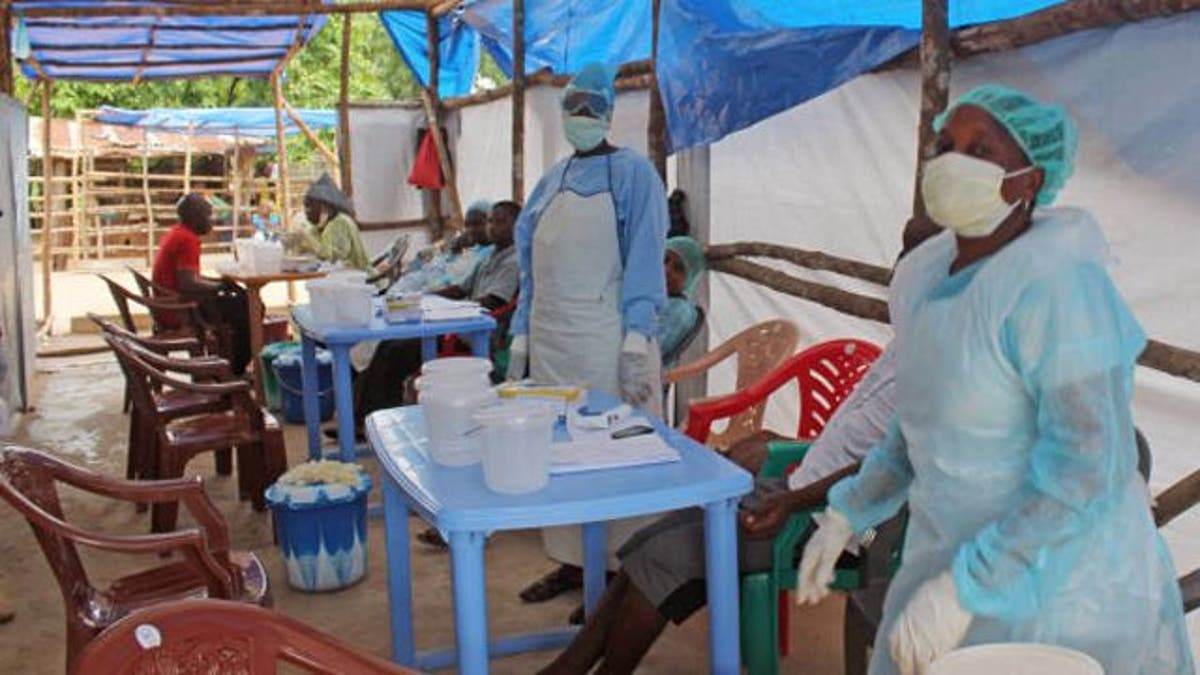
The worst Ebola outbreak in history is heaping new pressure on U.S. regulators to speed the development of treatments for the deadly virus, which has killed more than 700 people since February.
The U.S. Food and Drug Administration on Friday said in an emailed statement the agency "stands ready" to work with companies and investigators working with patients "in dire need of treatment."
A senior official within FDA told Reuters the agency would consider proposals for providing treatments under special emergency new drug applications, if the benefits of the treatment outweighed the potential safety risks.
"We take this very, very seriously," the source said.
FDA's statement follow calls by doctors fed up by the lack of progress on Ebola treatments, a market deemed too small to gain much attention by large pharmaceutical companies.
Earlier this month, the agency put a hold on a Tekmira Pharmaceuticals Corp clinical trial of TKM-Ebola, one of the few Ebola treatments advanced enough to be tested in people.
The hold prompted a North Carolina physician with family members in West Africa to say enough.
"This should be the last Ebola epidemic without a cure," said Dr. Ahmed Tejan-Sie, an internist from Burlington. Tejan-Sie started a petition on Change.org to urge FDA to lift its hold on the drug. It now has 15,000 signatures.
Shares of Tekmira rose sharply on Friday on news that the Ebola outbreak in West Africa has intensified, as investors expect the drug trial will be considered again by regulators.
"I'm not advocating that they take it out of the lab and start using it in West Africa. What I'm advocating is that the trials be accelerated," said Tejan-Sie, who spent much of his childhood in Ebola-ravaged Sierra Leone.
The director of the global charity Wellcome Trust last month took it a step further, arguing in favor of offering experimental treatments to people at high risk of dying from Ebola, saying the normal drug development process takes too long and should not apply in rapidly spreading outbreaks of diseases.
Giving experimental drugs to people in an epidemic is not without precedent. "Usually when this happens, there are drugs that are further along in development," said Dr. Amesh Adalja, an infectious disease expert at the University of Pittsburgh Medical Center.
In the 2009 H1N1 flu pandemic, for example, BioCryst Pharmaceuticals' experimental antiviral drug peramivir was made available through emergency use authorization. But that drug had been tested in widely in people by that time.
"With Ebola drugs, there hasn't been much work with them outside of animal models," Adalja said. "That makes it very hard to safely say we should use this in a compassionate use situation, although there is definitely a case to be made in these large outbreaks."
RISK-BENEFIT PROFILE
Tekmira's drug has only been tested in a few dozen healthy people. The FDA stopped its study in July because of safety concerns among people taking the highest doses of the drug who experienced problematic immune responses.
The hold means that particular study cannot proceed, but it does not prevent the company from submitting a new study proposal, say in people already infected with Ebola, for whom any safety risks from the treatment would be mitigated by the risk of dying.
In that case, "the benefit-risk ratio changes completely," the FDA source said. "Anything that would shift the risk-benefit to a more favorable outcome could potentially allow the authorization of that study."
What is not clear is whether Tekmira or any developers of possible Ebola treatments would choose to test their drugs in patients infected with Ebola, particularly in the midst of a raging epidemic in which emotions and expectations run high.
Tekmira officials did not return calls or emails on Friday seeking comment. In a July 21 press release, the company said it is "mindful of the need for this important therapeutic in situations such as the ongoing Ebola outbreak in West Africa.
"TKM-Ebola is currently an unapproved agent and the regulatory framework to support its use in Africa has not been established at this time," the company added.
Dr. Thomas Geisbert of the University of Texas Medical Branch has done animal studies on the Tekmira drug and said there are few companies willing to develop Ebola treatments. There is "little financial incentive," given the small market potential for a drug that treats a rare disease afflicting developing countries, he said.
Geisbert said the drug "works great in monkeys in the lab," but that is largely because it is given relatively early in the course of infection.
"What if you start giving it to people who are almost dead and they die, but it's not the drug's fault? Then you blame the drug."
Geisbert said given the widespread mistrust of doctors in West Africa, which has driven dozens of victims to evade treatment, such an event could jeopardize the drug's prospects.
"It's a very delicate situation," he said.
